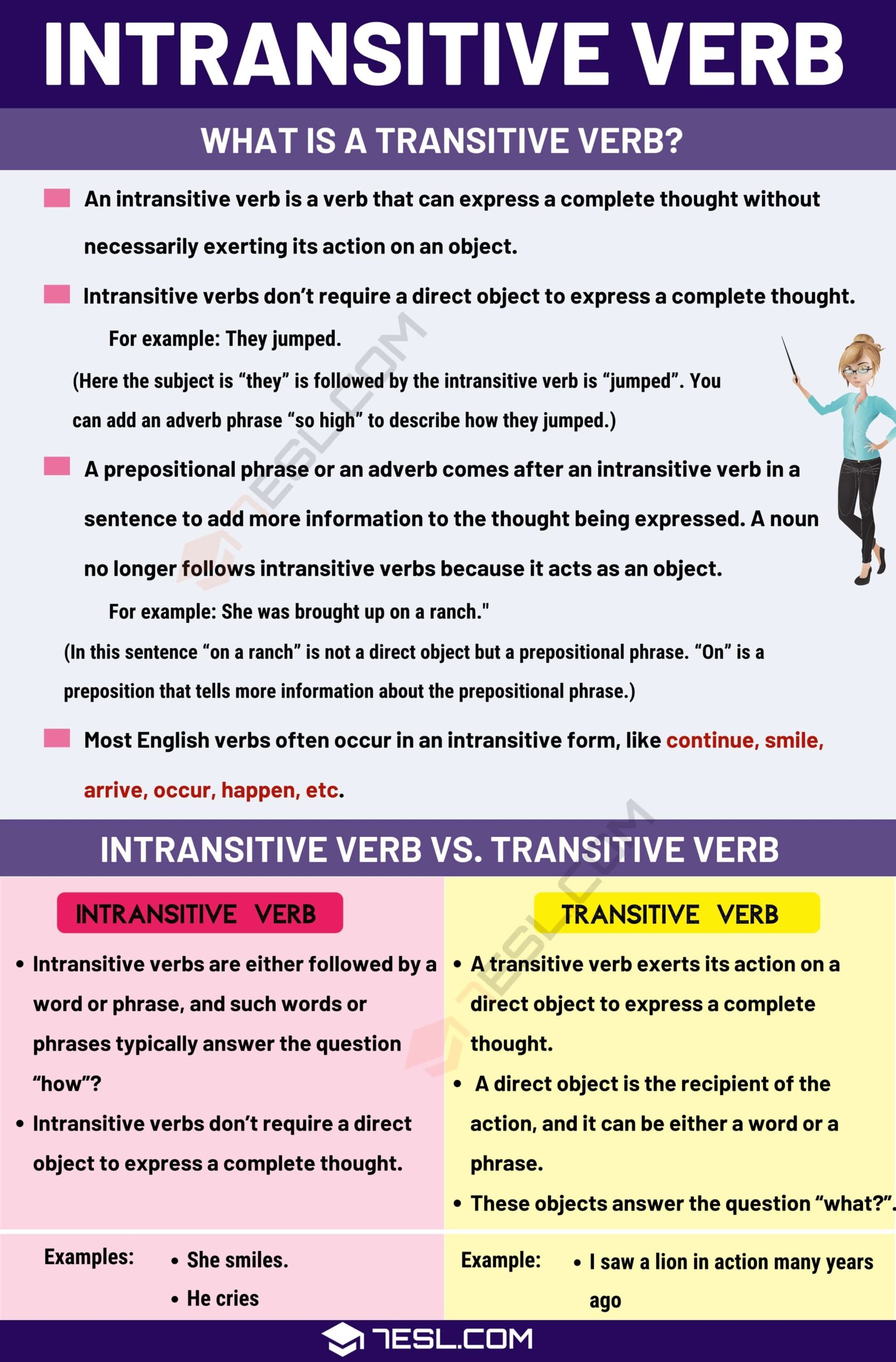Verbs are an essential part of any sentence, as they describe the action that is taking place. However, not all verbs are created equal. There are two main types of verbs: transitive and intransitive. Understanding the difference between these two types of verbs is crucial for constructing clear and grammatically correct sentences.
Transitive verbs are verbs that require a direct object to complete their meaning. In other words, they need someone or something to receive the action of the verb. For example, in the sentence “She ate the apple,” the verb “ate” is transitive because it is followed by the direct object “the apple.” Without the direct object, the sentence would not make sense.
Difference between Transitive and Intransitive Verbs
On the other hand, intransitive verbs do not require a direct object to complete their meaning. These verbs express an action that does not require an object to receive it. For example, in the sentence “He sleeps peacefully,” the verb “sleeps” is intransitive because it does not require a direct object to make sense. The action of sleeping is complete on its own.
One key difference between transitive and intransitive verbs is the presence of a direct object. Transitive verbs always have a direct object, while intransitive verbs do not. This distinction is important for understanding how verbs function within a sentence and what they require to convey a complete thought.
Additionally, transitive verbs can be transformed into passive voice sentences, where the subject of the sentence receives the action of the verb. Intransitive verbs, on the other hand, cannot be transformed into passive voice sentences because they do not have a direct object to become the subject of the passive voice sentence.
It is important to pay attention to the type of verb being used in a sentence to ensure that the sentence is grammatically correct and conveys the intended meaning. By understanding the difference between transitive and intransitive verbs, you can improve your writing skills and create more precise and effective sentences.
In conclusion, transitive verbs require a direct object to complete their meaning, while intransitive verbs do not. This distinction is crucial for constructing clear and grammatically correct sentences. By knowing the difference between these two types of verbs, you can enhance your language skills and communicate more effectively.
